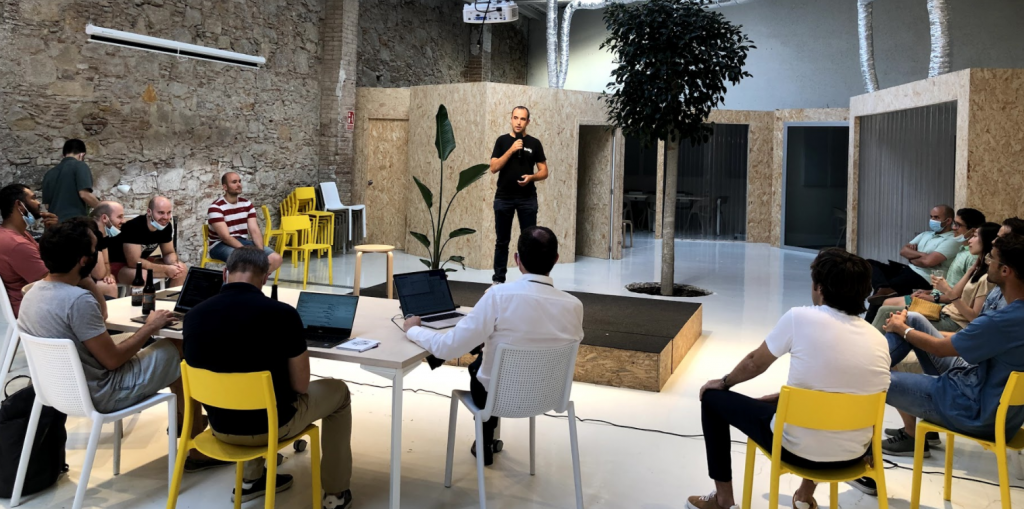Qué es y cómo funciona el Pacto de Socios – Entrevista a Josep Navajo
Bernat Farrero y Jordi Romero entrevistan a Josep Navajo para hablar de uno de los documentos más importantes a la hora de fundar una compañía: el Pacto de Socios.
Bernat Farrero y Jordi Romero entrevistan a Josep Navajo para hablar de uno de los documentos más importantes a la hora de fundar una compañía: el Pacto de Socios.
Smart Working se traduce al castellano como “trabajo inteligente”. No hay que confundirlo con el trabajo en remoto o el teletrabajo, pues si bien tienen similitudes, el Smart Working significa poder trabajar, no solo desde casa, sino también en otros entornos como espacios de coworking, cafeterías, e incluso aeropuertos.

Saber cómo presentar el pitch de un proyecto nuevo es una parte fundamental del éxito de una startup. No importa cuán única o innovadora sea la idea de negocio, se trata de cómo se vende a las personas adecuadas. El pitch de una startup debe estar bien pensado y planificado para que los inversores lo encuentren lo suficientemente interesante y decidan invertir y apoyar el crecimiento de esta nueva empresa.

Sabemos que las conversaciones sobre startups y emprendimiento pueden volverse un poco abrumadoras con todos los acrónimos y términos de negocio y tecnología. Nos ha pasado a todos cuando empezamos a entrar en el mundo de las startups. Más importante aún, si eres un emprendedor buscando financiación y empezar un proyecto, dominar el lenguaje de startups es clave a la hora de hablar con inversores, por ejemplo.
